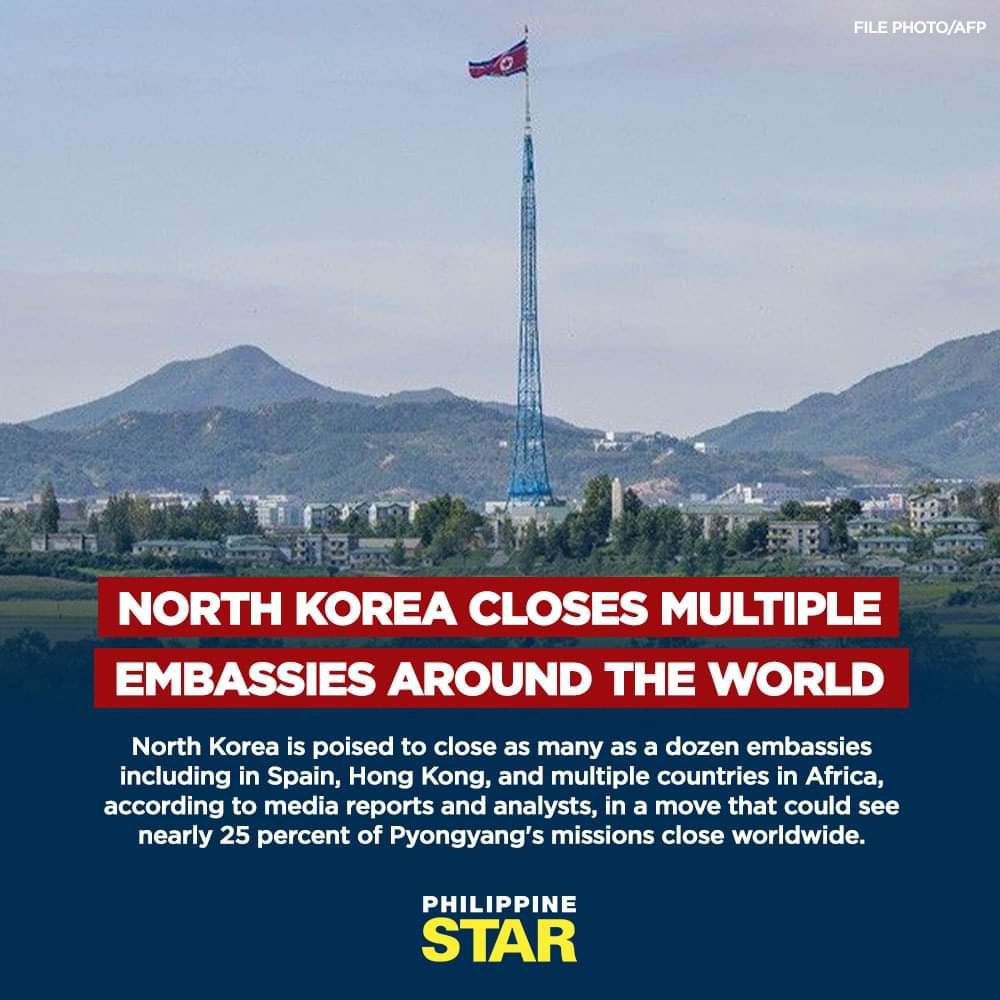North Korea is to close a number of embassies around the world, with the latest being its mission in Spain according to multiple reports. Why though are they being closed and what does it mean for the nations diplomatic and foreign policy?
News of the closure of the Spanish embassy came via a press release from the Communist Party of the Peoples of Spain (PCPE), the main communist organization in the Kingdom of Spain.
And while the party pointed to ideological reasons for the closure, the problems between the two states run much deeper. In 2017 the North Korean ambassador to Spain was expelled and more recently there have been legal issues related to Spanish national and head of the Korean Friendship Association Alejandro Cao de Benós. On January 27, 2022 an arrest warrant was issued by the FBI for him over allegations of “working with an American citizen to illegally provide cryptocurrency and blockchain technology services to the Democratic Peoples Republic of Korea (DPRK)”.
Other reasons given by the PCPE included European Union and United States sanctions on the DPRK, the harshest ever put-on a sovereign nation, which have made doing business so difficult that there is essentially no intrinsic value in keeping open the embassy.
Italy, whose embassy will remain open will take over consular survives from Spain.

Which other North Korean embassies are slated to close?
The news of the Spanish closure follows on from other previous announcements that the DPRK would be scaling back from its previous 46 foreign missions.
Two such embassies are those in Angola, and Uganda of Africa, a continent where the DPRK previously held much sway. Alas countries such as Angola, who still feel some ideological affinity with the country, now struggle to do any business due to the threat of sanctions against companies and individuals that do so.
It was also reported in Japanese media that North Korea would be closing its consulate in Hong Kong, with the country now doing a fraction of the business that it previously did with the Special Autonomous Region of China.
North Korea to close embassies, what does it mean for foreign policy?
While not too much can not be drawn from the closure of a few embassies and consulates it does t least indicate a few things. Firstly the cost of keeping open the missions vis-à-vis their economic and diplomatic value can no longer be justified by DPRK.
North Korean missions are rumored to have some degree of “self-financing”, with that meaning if they no longer “make a profit”, their existence is questioned.
Said financial concern and indeed the mass closures have been compared to those of the early 90’s and the fall of the Berlin Wall, the USSR and the economic instability it thrust onto the DPRK.
Secondly though and perhaps more tellingly is that it does increasingly look like North Korea is being pushed deeper into the arms of both China, Russia and to come extent the BRICS nations by the antagonistic foreign policy of the United States and its allies.

Following the failure of the Hanoi summit and Biden becoming US President, US policy towards the DPRK has become increasingly more hawkish and in line with previous administrations.
This has included not only a continuation of its so called “war games” with the Republic of Korea (south Korea), but also laughably calling for “more sanctions” on the country after their alleged supplying of ammunition to Russia in its ongoing Special Operation in Ukraine.
This has led to diplomatic ties between the DPRK and the Russian Federation now being as at their strongest since the fall of the Soviet Union. This year Chairman Kim Jong-Un paid a historic visit to Russia, while more recently Russian foreign minister Sergei Lavrov visited Pyongyang (https://www.easternangle.com/russian-foreign-minister-visits-north-korea/) where he not only called for better diplomatic relations, but also improved bilateral trade between the two allies.
Quite ironically Russia had previously been thwarted from doing business with North Korea due to threat of breaking sanctions, something no longer valid after Russia was also put under them.
Sadly for western countries the Russian economy though did not implode, but the country has actually seen economic growth, growth it intends to share with those it views as allies.

